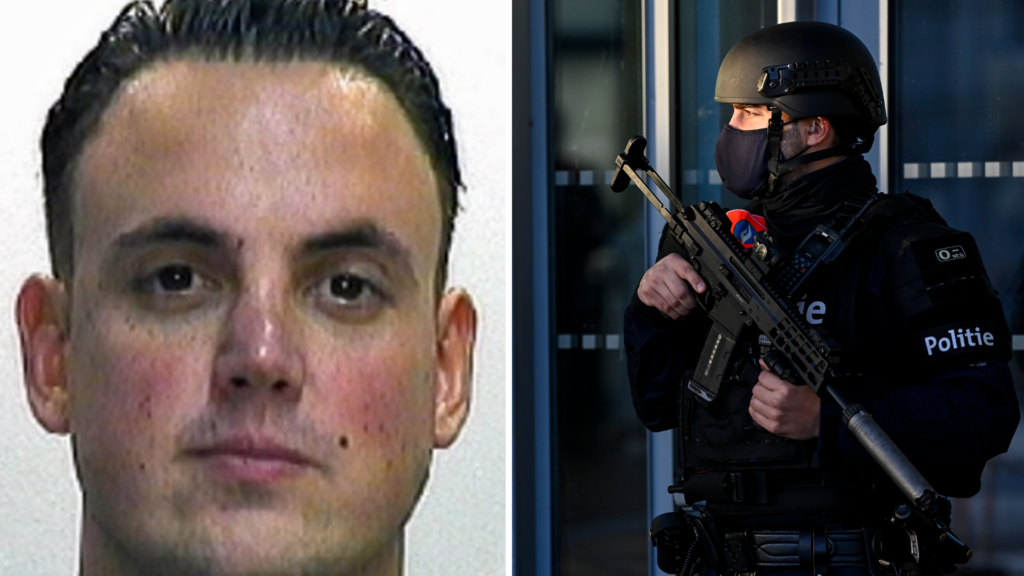Flor Bressers, the notorious Belgian criminal suspected of being a key figure in an international drug trafficking ring, is currently undergoing trial in Brussels. But proceedings were interrupted as his lawyer had to be removed from the courtroom by police.
Bressers – who picked up the nickname "the finger cutter" thanks to his tactics of coercion – is considered a major figure in a criminal network. He was extradited from Switzerland in February 2022 and has been in pre-trial detention since.
Whilst his trial was initially supposed to take place in a criminal court in Bruges, the case was relocated to the Brussels courthouse for security reasons. This prompted his lawyer, Hans Rieder, to energetically challenge the authority of the Brussels judicial district. When Rieder announced vociferously that his client would contest the court's jurisdiction, he was expelled from the room by the presiding judge to allow other lawyers to speak.
Several of his colleagues also left the courtroom in protest. After mediation, Rieder was allowed to make his case and cited Article 4.7 of the Judicial Code, stating that the Bruges criminal court (which first brought the case against his client) lacks jurisdiction in the Brussels district. Rieder also argued that the relocation decision violates the European Treaty and the European Convention on Human Rights.
The case was initially scheduled to begin in October but was postponed following a recusal request from Bressers’ defence, which was ultimately rejected.
Related News
- Third drug criminal wanted by Belgium nabbed in Dubai
- 'Finger cutter' drug lord extradited to Belgium
- One of Belgium’s most wanted drug criminals arrested in Switzerland
Brazilian national Sergio Roberto de Carvalho, also suspected of leading the network, was apprehended in Hungary shortly after Bressers and extradited to Belgium a year later.
In late 2019, investigators received information that a wastewater treatment company was involved in drug importation. In early April 2020, over three tonnes of cocaine were intercepted at the port of Rotterdam, hidden in manganese ore containers. By June of that year, the 80-year-old founder of the wastewater company and his family members were arrested.
The seizure of 3.2 tonnes of cocaine was just the tip of the iceberg. An international police operation led to the arrest of 38 people in Brazil, Belgium, Spain, and Dubai, United Arab Emirates.

